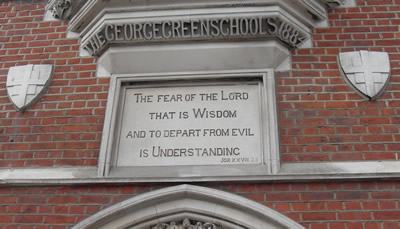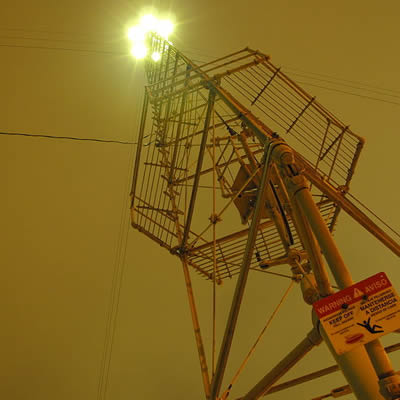Brief monthly reviews of the anarchist press
For some time I have been lamenting the loss of the review, a format that is a great way to learn about projects, periodicals, and books that might interest a person. But it has largely died. The closest thing we had to an “anarchist review” was the brilliant column done by John Petrovato, but this was done infrequently at best and only ever reviewed books. There was also a great project from the UK called the Hobnail Review but it only lasted about a year and barely left the island. During my tenure at Anarchy: A Journal of Desire Armed I loved the task of saying a couple words about the new magazines and periodicals that came out between issues. Even when I was critical of the specifics of the product I always loved the process of talking about new projects.
I love print (& to a much lesser extent the pdf seed of print) and always want to encourage us (by whom I mean anarchists: lovers of freedom, passion, and the future) to do more of it. To get it into the hands of more, and different, people and to nurture an attitude about print as one of the weapons we use to war against society.
Therefore the Hammer is to be a counter-point to another project, The Anvil. While The Anvil uses the review essay to interrogate popular culture The Hammer will have a simpler task. It will provide mostly short reviews of current anarchist periodicals. It will focus less on critical engagement than on being informative (obviously I reserve the option though) and will focus on English (with only a cursory examination of other languages as I encounter them) publications. Each issue will reflect what is new in print, pdf, and other formats as time is available.
If you would like to send me your new anarchist material please do so at PO Box 3549, Berkeley CA 94703. If you want to make sure I make a note of your publication drop me a line here. Along with this monthly newsletter there will be a print version of these reviews either along with The Anvil or in another form yet to be decided. Publication during this month’s edition of The Hammer doesn’t mean that the publication date was July, just that I received the publication this month (or earlier in this case).
This will be sent out as an email from an automated email list. If you would like to subscribe to The Hammer visit this page http://www.angrylists.com/cgi-bin/mailman/listinfo/hammer. If you want to be unsubscribed (and were mailed this, probably due to a publication of yours being reviewed) the instructions should be on the bottom of this email.
Act/React #2, PDF, June 2011
I am pleased as punch to see an anarchist periodical come from my hometown of Grand Rapids, MI, a reactionary midwest town that those who can, run from as fast as humanly possible. This is an author-less publication and tends towards rants and first person accounts of the trauma associated with living in this society. There is an interesting glimpse into the GR anarchist scene (which is a phrase I never thought I would utter) with the article Reflections on a Worker-run business and revolutionary potential.
Download, Grand Rapids MI, General/Personal
Anarchy: A Journal of Desire Armed #70/71, magazine, CAL Press, Spring/Summer 2011
AJODA is back after a year’s hiatus and this issue is another double issue. It is strikingly attractive with lovely cover art by Christian Edler and spot color throughout the issue courtesy of Eberhardt Press. The highlights include a few reviews of projects I am involved in: Nihilist Communism (the review is by Bob Black) and The Anvil. It also includes two lengthy engagements with The Coming Insurrection on by Wolfi Landstreicher (con) and the other by Lawrence Jarach (mixed positive). Perhaps the strangest thing in this issue is the column from John Zerzan titled Love. An excerpt from the first sentence “The vertigo of techno-modernity is an invasive sense of nothingness.”
Web, Berkeley CA, Post-left anarchist
ASR #56, magazine, Summer 2011
This bi-annual publication does a good job of collecting the writings of an international group of Anarcho-syndicalists. This issue has a special section on the Mid-East revolts of the spring of 2011 and an article on the simultaneous events of Wisconsin. Articles by van der Walt, Barclay, McKay, Hargis, and the indefatigable Bekken.
Web, Philadelphia PA, Anarcho-syndicalist
Black Cat Sabotage Book, magazine
This manual on sabotage is a new twist on an old idea. Mostly it feels like a rather thick reprint zine of old LWOD (Live Wild or Die) or pre-Judy Bari era Earth First! It is a fanzine in the traditional sense of having an obsession and then sharing every scrap of information (from the aforementioned publications) a fan could find about it. Poems about how great the earth is, striking graphics and cartoons, etc. Starting around page 100 are reprints of a few ALF recipes (wink, wink). This is followed by boilerplate security culture reprints and there you go.
Download, Green
Black Flag #233, Black Flag Group, magazine, mid 2011
This revitalized UK magazine has considerable overlap with Freedom Press (layout and authors). Whereas Freedom is topical, Black Flag attempts analysis, interviews, and deeper reporting on the issues Freedom covers. This issue focuses on the student movement (there were a series of eventful student protests in London that were dominated by periods of uncontrollability and kettling) of the Spring. Interviews include Active Distribution and Atari Teenage Riot. Reviews include the Socialist Party, Mutual Aid (via an introduction), Derek Wall, and Dave Douglass’ biography. If you love the writing of Iain McKay you will love Black Flag.
Web, London UK, Anarcho-Communist
Enemies of Society, book (392), Ardent Press, Spring 2011
This is the new book by Ardent Press (standard disclaimer: I published this book). It is an anthology of egoist and individualist anarchism. The story it tells is of different groups who were inspired by the work of Max Stirner: dissident readers of US based Liberty , Italians who went to war with the existing order and French folks who took the lessons into a short lived illegalist practice of daily life. In addition there is a (too) short chapter on egoist readings of Nietzsche and short articles on egoist practice beyond robbing banks and attacking politicians.
Web, Berkeley CA, Egoist
Fire to the Prisons #11, magazine, Spring 2011
FTTP is an irrepressible publication from the New York area that bills itself as an insurrectionary magazine focused on reporting on struggles of the disaffected. It does this reporting to inspire its readers to do something about their own feelings of frustration and resentment. This issue continues the FTTP pattern of placing strong graphics with poignant text in the style of Adbusters or any number of post-Situationist magazines. The effect continues to be striking. This issue includes articles on the Arab Spring of revolt, Appalachian struggles against coal mining, repression, and a chronology of prisoner resistance.
Web, Download, Insurrectionary
Freedom Vol 72 #14, tabloid, Freedom Press, June 2011
Freedom is looking healthier than I’ve seen it in a while. Good reporting, a silly cover image of a Crass crop circle (sighted near Stonehenge…), and a full color Wildcat comic, frame the issue. Contents include a criticism of News of the World and the latest Murdoch scandal, an obituary of Bob Miller, an analysis of recent prosecutions of UK anti-fascists due to a dustup in the London Underground. The highlight of this issue is the first part of a two part series on the role of Kropotkin on the modern ecological movement. This part focuses on Kropotkin’s theories around evolution and politics.
Web, London UK, Anarchist-Communist
Property is Theft, book (670), AK Press, April 2011
This is an Iain McKay joint. A large, but by no means comprehensive, collection of Pierre-Joseph Proudhon’s work. The editor has also been writing quite a bit of supporting material, mostly on his blog at the ‘Anarchist Writers’. If you have any interest in PJ Proudhon, especially how his writings can be interpreted as being pre-Anarcho-Communist, you will get a fair reading of it with this collection.
Web, History
Psychic Swamp #1, PDF, Spring 2011
This is a brand new project from Max Cafard (who doesn’t do enough visible anarchist writing). At the heart of this new periodical, a surre(gion)al review, is an excellent review essay about the movie Avatar. It might be easy to dismiss this–as, on some level, everything that needs to be said about the monsterous movie has been said–but Cafard brings in great new information. Specifically he spends a great deal of time talking about the fairly recent advances in drone technology and how this relates to the future of warfare. The lesson of Avatar isn’t just about the incredible volume of money it generated but the ways in which it will and will not prefigure future warfare.
Web, Lousiana, Anarcho-Surrealist
Revolt & Crisis in Greece, book (378), AK Press, April 2011
This third book on the Greek Uprising (the non-AK book was called Everyone to the Streets) comes out of the Occupied London group who are Greek expats living in the UK. This book is a collection of essays by several dozens writers who provide a less activist, more learned context to the environment around Athens prior to the 2008 uprising and since the uprising into the current economic crisis. Some of the highlights include the analysis by TPTG, Christos Boukalas, and Antonis and Dimitri (who are part of the editing group and who toured the US in the spring of 2011).
Web, Greece/London, Greece
Tides of Flame, PDF, July 2011
This is new biweekly periodical from Seattle is incredibly ambitious. Along with the real stories of the activities of the comrades in the PNW are original analysis and histories. Just in the first two issues, which both appeared before 26 people were arrested in late July, are writing about the George Jackson Brigade, recent actions in the area, terrorism, rebellion in walla walla, an artist named Zeb, and much more. If you are in the area you should help this project out.
Web, Seattle WA, anarchist insurrectionary
Total Destroy #5, PDF, Spring 2011
This is an issue of the Milwaukee zine that has appeared sporadically over the past few years. From a rough start this issue stands tall as an object lesson in how theory is related to, and improved by, practice. This issue reflects the participation of the authors in the events that surrounded the Wisconsin occupation of the Capital building in response to Governor Walker’s attack on the rights of the Unions in negotiations with the state. Included are accounts of the occupation, of actions (not non-violent) taken in the state, interviews with the authors, and communiques issued at the time.
Download, Milwaukee WI, Anarchist Insurrectionary
Wolves at the Door, A5, Autumn 2011
This is a modern zine with well thought out positions on a variety of topics. One, a lengthy article critical of anarchist spaces, makes arguments against localism, for pre-figuration, and touches on both Holloway and Delueze (“our appropriated spaces can become nodes in a web of power”) without sounding too high falutin’. Other articles include one on Libya, an interview with Mutiny, a review of the local anarchist summer school (!), Athens, and liberalism (anti). This is a strong first showing for this project of not-ideological anarchism.
Download, Australia, General








